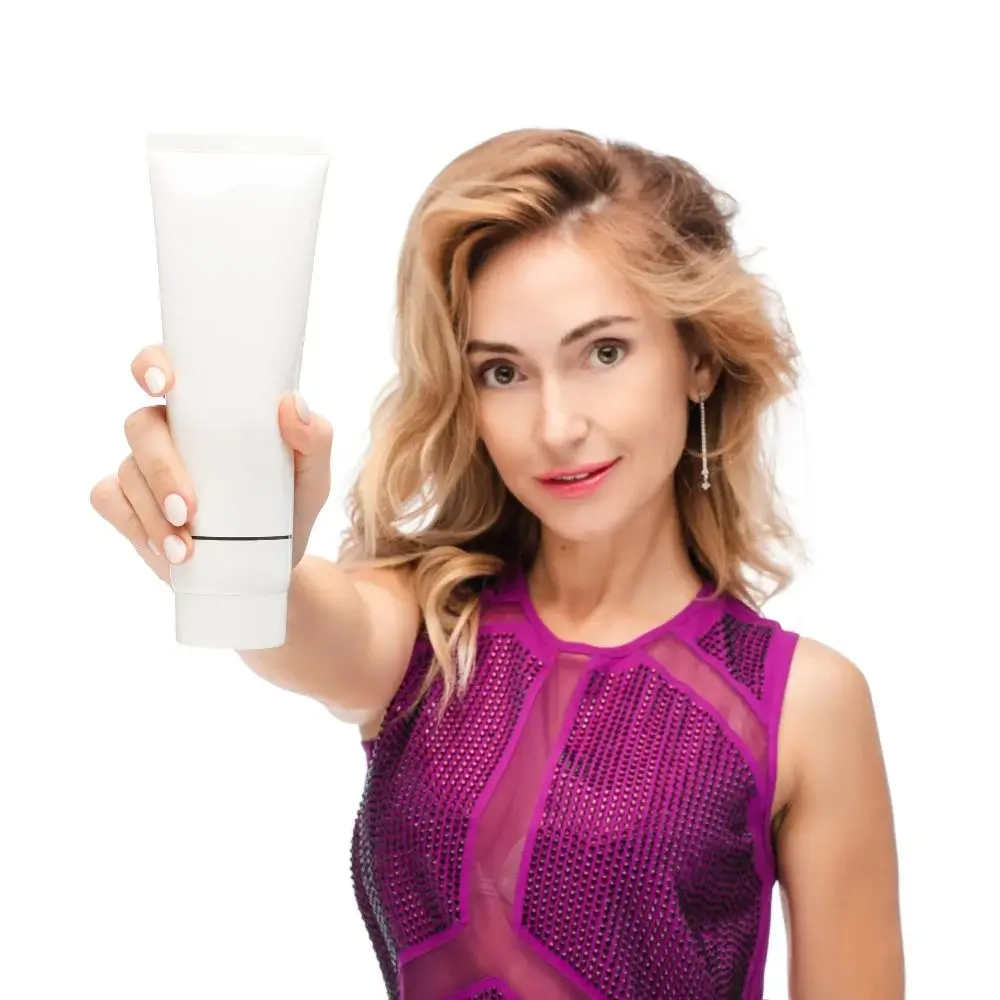Postpartum hair loss, also known as Telogen Effluvium, is temporary hair loss that occurs in new mothers after childbirth. As a new mother, you might have to deal with hair falling out more than ever before. Hair loss is a natural response to hormonal changes that happen during pregnancy and childbirth, and it is experienced by most new mothers. But don't worry; plenty of ways to manage postpartum hair loss exist. One of the best ways to do that is by choosing the right shampoo. This blog post will help you choose the right shampoo for postpartum hair loss.
Look for a shampoo with natural ingredients
Postpartum hair loss can be stressful, so you need a shampoo that uses natural ingredients to help strengthen and nourish your hair. Look for shampoos with natural ingredients such as lavender, rosemary, aloe vera, and tea tree oil. These ingredients not only help cleanse your hair, but they also help improve blood circulation, reduce inflammation, and promote hair growth.
Avoid shampoos with harsh chemicals
Regarding postpartum hair loss, you want to avoid shampoos with harsh chemicals like sulfates, parabens, and phthalates. These chemicals can damage your hair, lead to excessive dryness, and even trigger hair loss. That's why using a gentle, sulfate-free shampoo that won't strip your hair of its natural oils is essential.
Choose a shampoo with biotin
Biotin is a B vitamin known for promoting hair growth and improving hair strength. Look for shampoos containing biotin, which can help prevent hair loss and stimulate growth. Biotin also helps thicken your hair, which is a bonus if you want to increase the volume of your hair postpartum.
Consider a volumizing shampoo
Postpartum hair loss can make your hair look flat and lifeless, which can be discouraging. But don't worry; plenty of volumizing shampoos on the market can help you achieve a fuller-looking head of hair. Volumizing shampoos contain ingredients that gently cleanse the scalp, remove excess oil, and coat the hair strands. This helps create the illusion of fullness and volume.
Don't forget to hydrate your hair
When choosing a shampoo for postpartum hair loss, looking for a product that will help hydrate your hair is essential. Postpartum hair loss can make your hair dry and brittle, leading to more breakage and hair loss. Look for shampoos that contain hydrating ingredients such as Argan oil, Coconut oil, and Shea butter. These ingredients nourish your hair, lock in moisture, and promote healthy growth.
Choosing the right shampoo for postpartum hair loss can feel overwhelming, but it doesn't have to be. When selecting a shampoo, look for natural ingredients, avoid harsh chemicals, choose a biotin-rich shampoo, consider volumizing shampoos, and opt for hydrating formulas. By following these tips, you can find the perfect shampoo to help manage postpartum hair loss and achieve a fuller-looking head of hair. Remember, postpartum hair loss is temporary, and with some care and attention, your hair will return to its pre-pregnancy glory in no time.
Dealing with postpartum hair loss can be a frustrating experience that many new moms struggle with. It can be overwhelming, from noticing a more significant amount of hair in the shower drain to finding strands of hair all over your clothing. That's why we've spent time and effort researching and finding the best shampoo for postpartum hair loss. With our comprehensive review, you can easily find a quality shampoo that will help reduce shedding and promote healthier, stronger hair. So why not take a look and find your new favorite shampoo? A little extra care for your postpartum hair can make a big difference in how you feel about yourself.
What are the common symptoms of postpartum hair loss?
Postpartum hair loss typically presents with several noticeable symptoms. It's characterized by an increased rate of hair shedding, causing you to find more hair on your pillow, in the shower drain, or on your hairbrush than usual. As a result, you may observe visible thinning of your hair, especially around the temples and crown. In some cases, postpartum hair loss can even lead to the development of bald patches. These symptoms usually become evident a few months after childbirth due to hormonal fluctuations and changes in the hair growth cycle. It's essential to remember that postpartum hair loss is a temporary condition and not indicative of a severe underlying health issue.

What is the timeframe for postpartum hair loss to occur?
The timeframe for postpartum hair loss is somewhat predictable, although it can vary significantly among individuals. It typically initiates around three months after giving birth and can continue for several months afterward. The peak of postpartum hair loss is often observed at approximately six months postpartum. However, it's essential to note that the exact onset and duration of postpartum hair loss can vary due to genetics, hormonal fluctuations, and overall health. Some individuals may experience these changes earlier or later than the typical timeline.

What are the best shampoos for postpartum hair loss prevention?
When searching for shampoos to prevent postpartum hair loss, it's essential to consider products that contain a combination of essential ingredients known for their hair-strengthening and growth-promoting properties. These ingredients may include biotin, keratin, caffeine, essential vitamins (like Biotin, Niacin, or Panthenol), and natural extracts such as saw palmetto. These components work synergistically to fortify hair follicles, encourage healthy hair growth, and reduce excessive shedding. However, to determine the most suitable product for your unique hair type and postpartum needs, it's highly recommended to consult a dermatologist or hair specialist who can provide personalized recommendations.

How can I distinguish postpartum hair loss from other hair issues?
Distinguishing postpartum hair loss from other hair-related concerns is crucial for effective management. Postpartum hair loss is typically characterized by its timing, occurring several months after childbirth, and is often associated with hormonal fluctuations, particularly a sudden drop in estrogen levels. However, if you are uncertain about the cause of your hair loss or experiencing persistent issues, it's advisable to seek the expertise of a healthcare professional or dermatologist. They can conduct a comprehensive evaluation to rule out underlying causes of hair loss, such as thyroid disorders, alopecia, or nutritional deficiencies, and provide appropriate guidance for treatment and care.

How should I properly wash my hair with a postpartum hair loss shampoo?
Properly washing your hair with a postpartum hair loss shampoo involves a gentle and meticulous approach. Start by gently applying the shampoo to wet hair and using your fingertips to massage it into your scalp. Avoid vigorous scrubbing, as this can place unnecessary stress on fragile hair. Rinse your hair thoroughly with lukewarm water to remove all product residues effectively. After washing, pat your hair dry with a soft towel, avoiding aggressive rubbing, contributing to further damage. These gentle practices are essential for maintaining the health and strength of your hair during this period of increased vulnerability.
Should I stop using hair styling products during postpartum hair loss?
Minimizing hair styling products such as heat styling tools, hair sprays, and chemical treatments is advisable postpartum. These products can exacerbate hair damage and weakening, making the recovery process more challenging. Instead, opt for more natural and gentle styling methods. Consider hairstyles that do not require excessive pulling or tugging on your hair to reduce stress on your already delicate strands. Prioritizing your hair's overall health and well-being during postpartum hair loss is essential for promoting regrowth and maintaining its strength and vitality.







